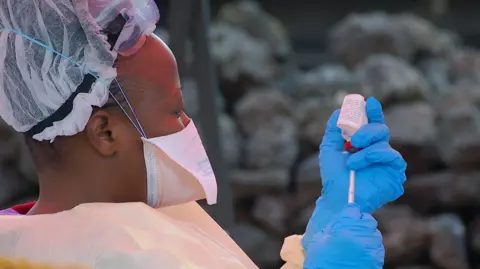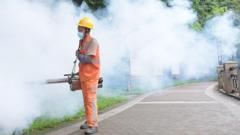In Sierra Leone, a troubling mpox outbreak has captured the attention of health officials and global observers alike, as the country reports an alarming rise in cases. The infection has spread to all 16 regions, including the capital city of Freetown, prompting authorities to take drastic measures.
In a bid to free up resources for other vulnerable patients, local health officials implemented a January initiative to treat mpox patients at home. Unfortunately, this strategy has resulted in rapid virus transmission, particularly in densely populated urban areas, highlighting the challenges of managing outbreaks in a limited healthcare system.
In response to this escalating health crisis, the Sierra Leonean government has established multiple centers aimed at isolating and treating infected individuals. However, rising case numbers have overwhelmed these facilities, leading to a shortage of hospital beds and a dire lack of essential vaccines.
Moreover, a crucial public health campaign aimed at tracing and monitoring potential exposure was halted in April due to budgetary constraints. Despite urgent requests for vaccines, the health ministry has faced significant difficulties in securing the necessary support, with the Africa Centres for Disease Control and Prevention acknowledging the compounded impacts of a weakened health system and declining international aid.
The situation in Sierra Leone has intensified calls for enhanced global cooperation and resources to tackle the complicated landscape of infectious diseases in West Africa. Dr. Ngashi Ngongo has emphasized the critical need for support, underscoring the fragile health infrastructure now further strained by financial challenges. The hope is that as infections rise, so too will the international response to a crisis that poses a significant threat to public health across the region.



















